Abstract
A questionnaire inquiring into the nature of schemes for the insecticidal control of disease vectors, the development of resistance in these vectors, and the effect of any such resistance on their control and on the extent of disease was sent to more than 100 health authorities throughout the world. The replies to the questionnaire are summarized in this paper.
Until recently, the use of insecticides in public health has been largely based on three organochlorine compounds—DDT, HCH and dieldrin. However, in some countries resistance to these has now severely affected control both of many insect species and of the diseases they transmit (e.g., malaria, yellow fever, filariasis, typhus, plague). Certain other public health problems (onchocerciasis, Chagas' disease, trypanosomiasis, leishmaniasis) have not so far been greatly affected by resistance, but it is difficult to be sure of the continued reliability of the organochlorines.
Research in the past 5 years, much of it sponsored by WHO, has shown the value of various organophosphorus and carbamate insecticides as replacements for the organochlorines, although resistance to them, too, can occur. Attention must therefore be focused on all facets of the use of these newer compounds and particular scrutiny made of possible instances of resistance to them.
Full text
PDF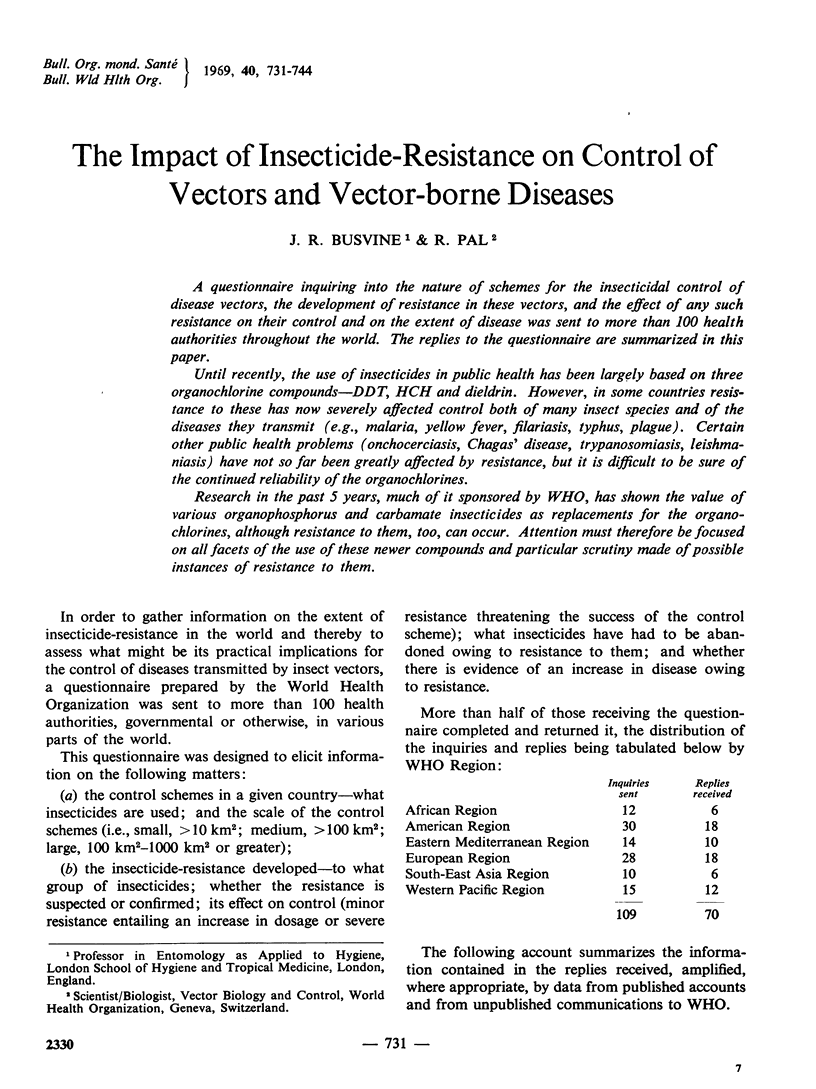
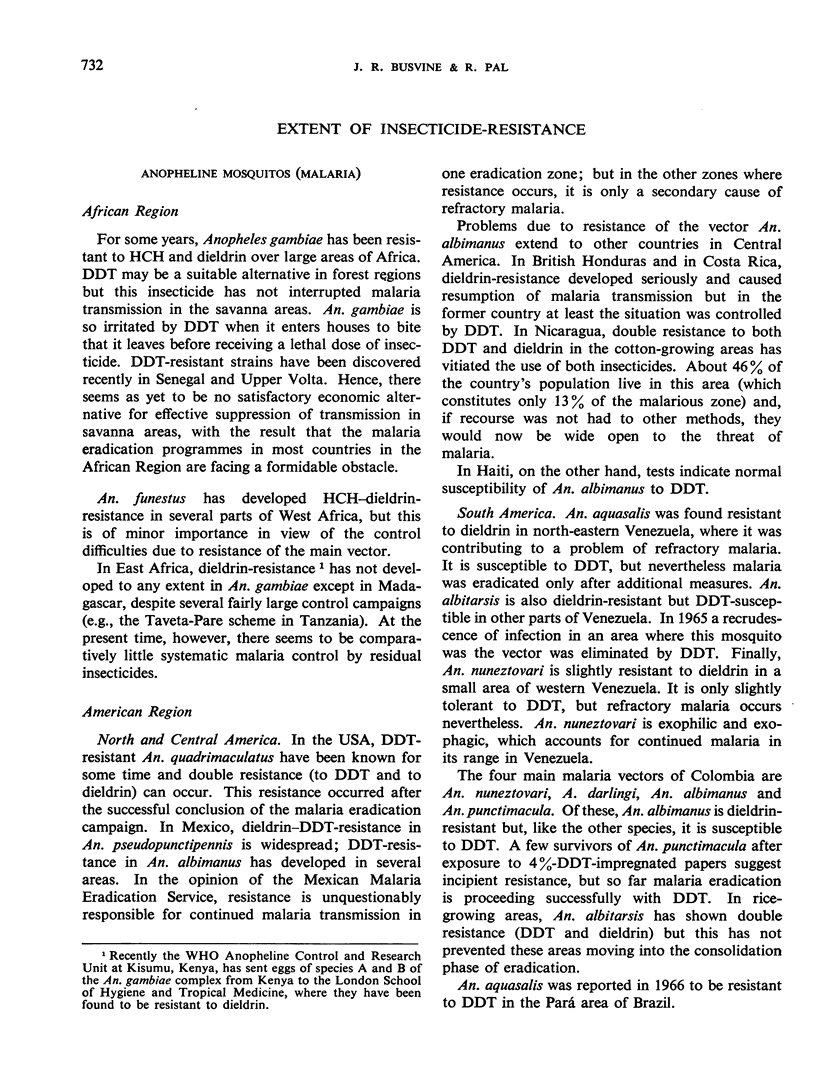
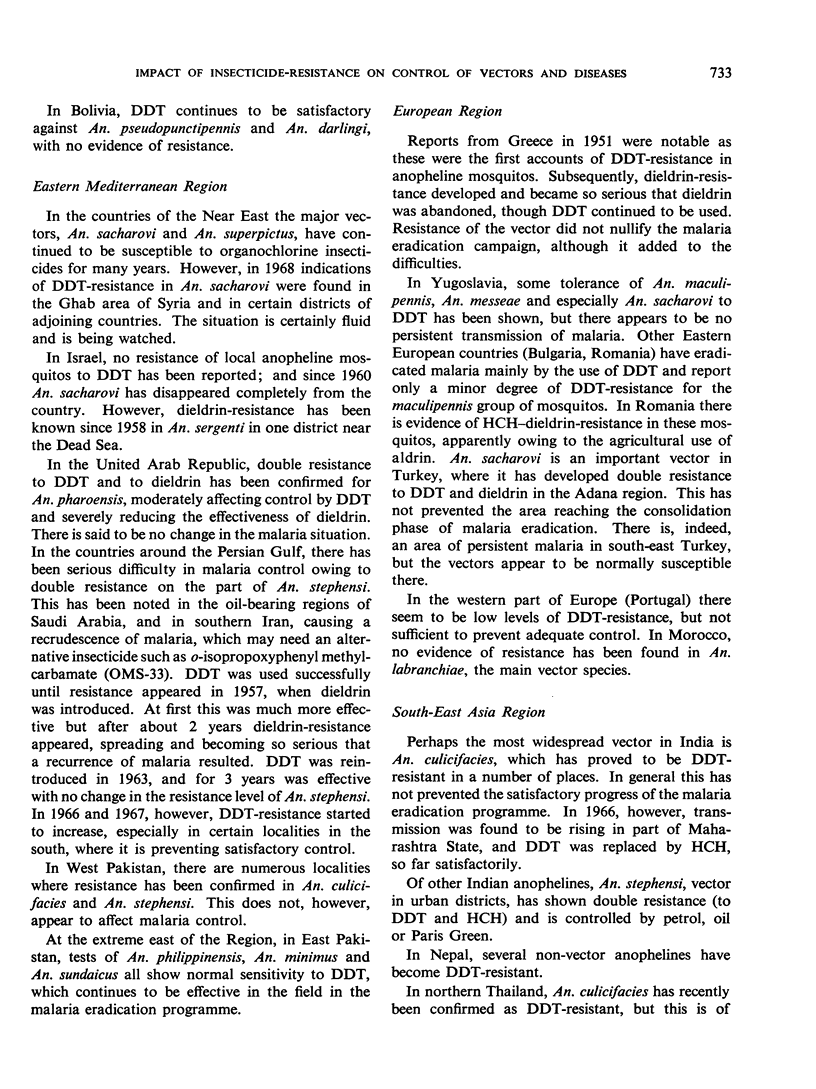
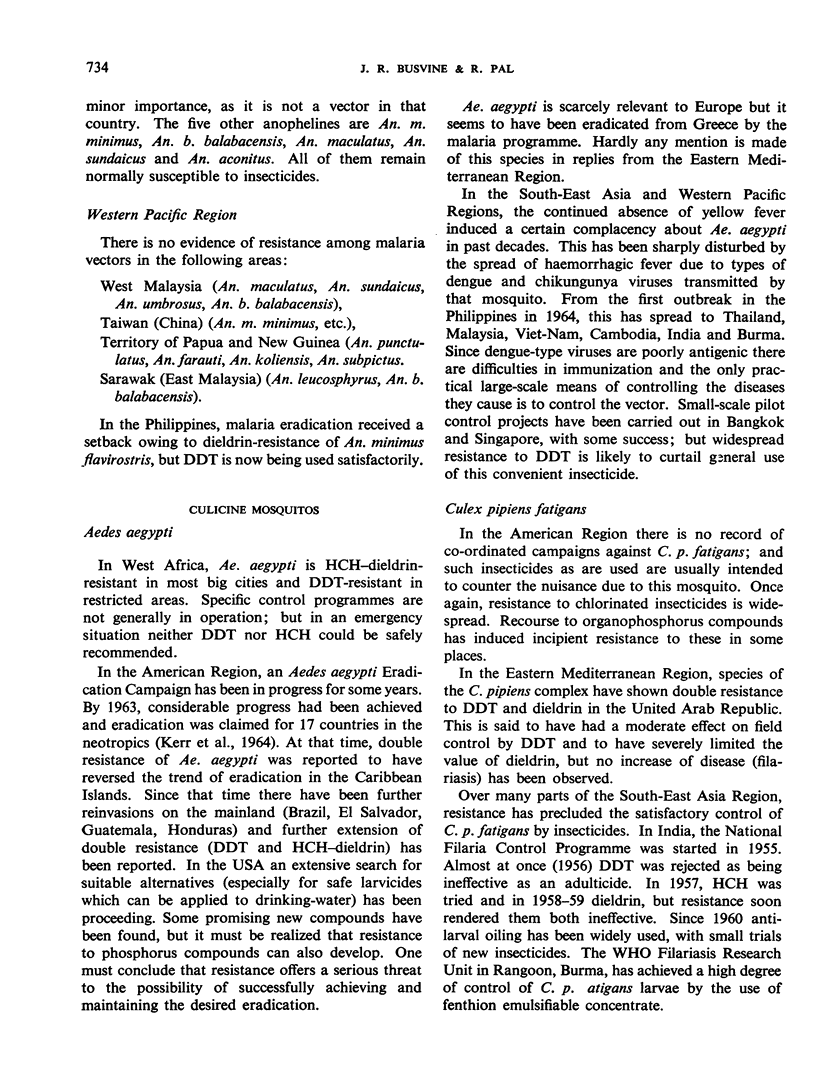
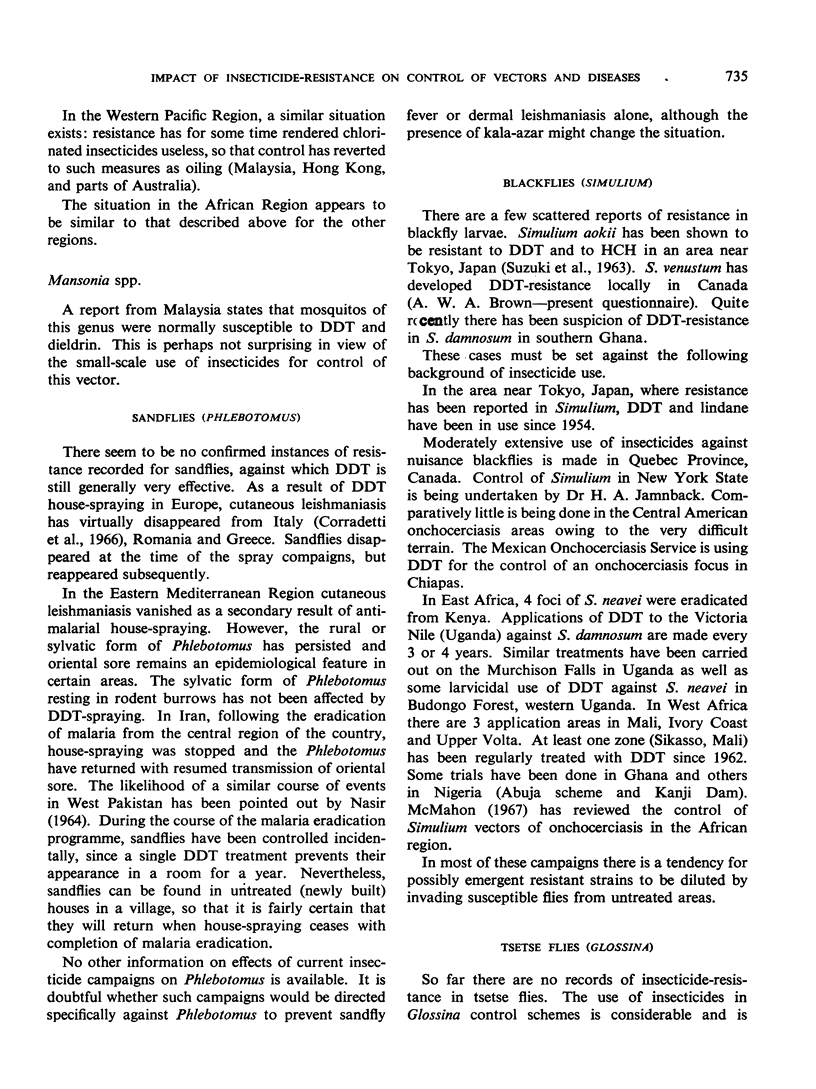
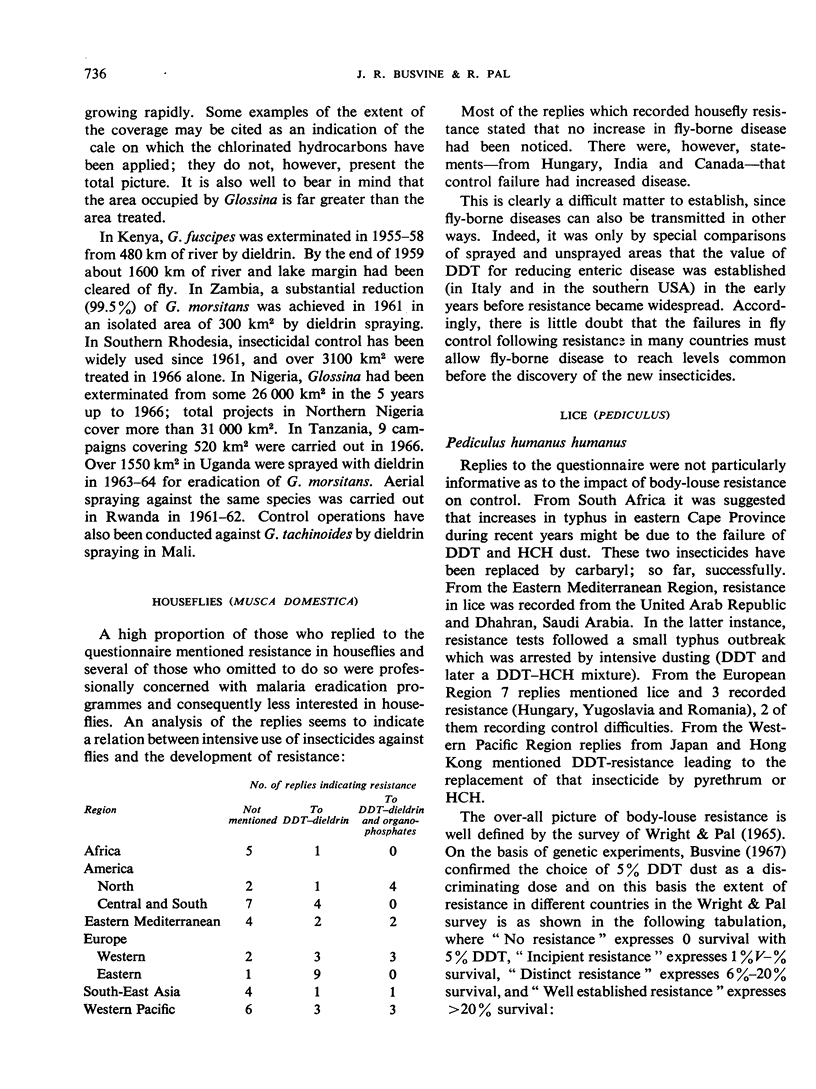
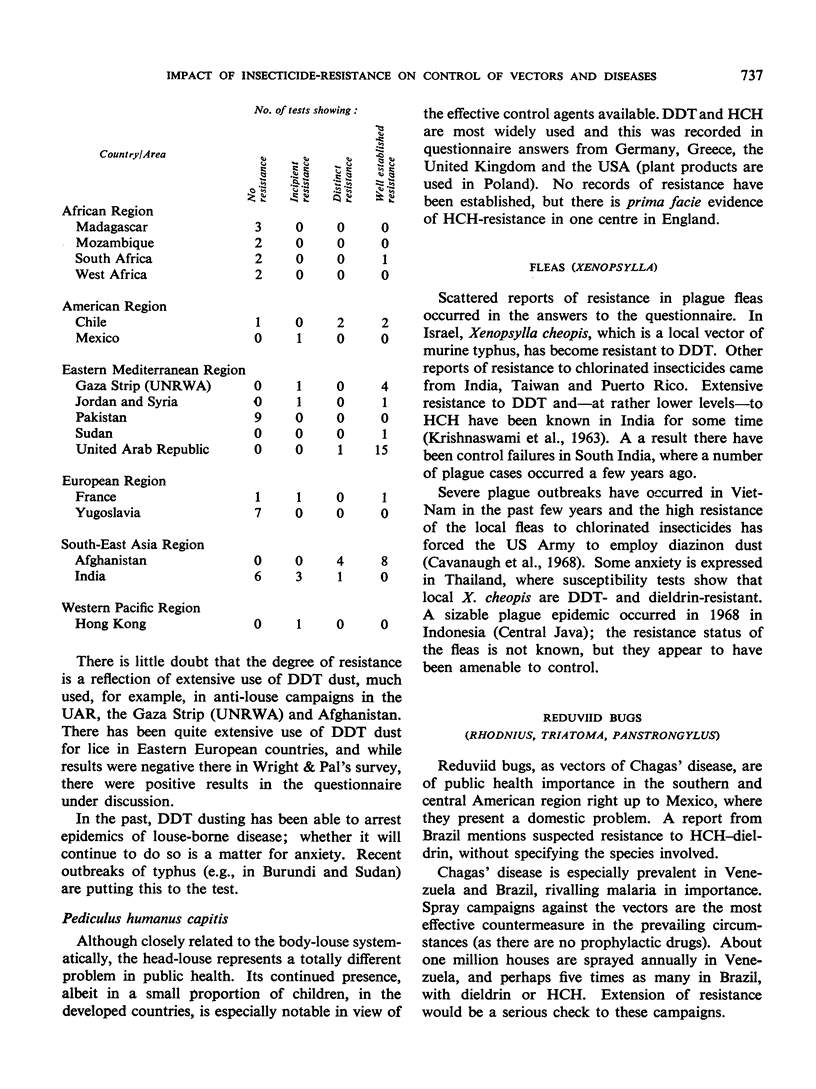
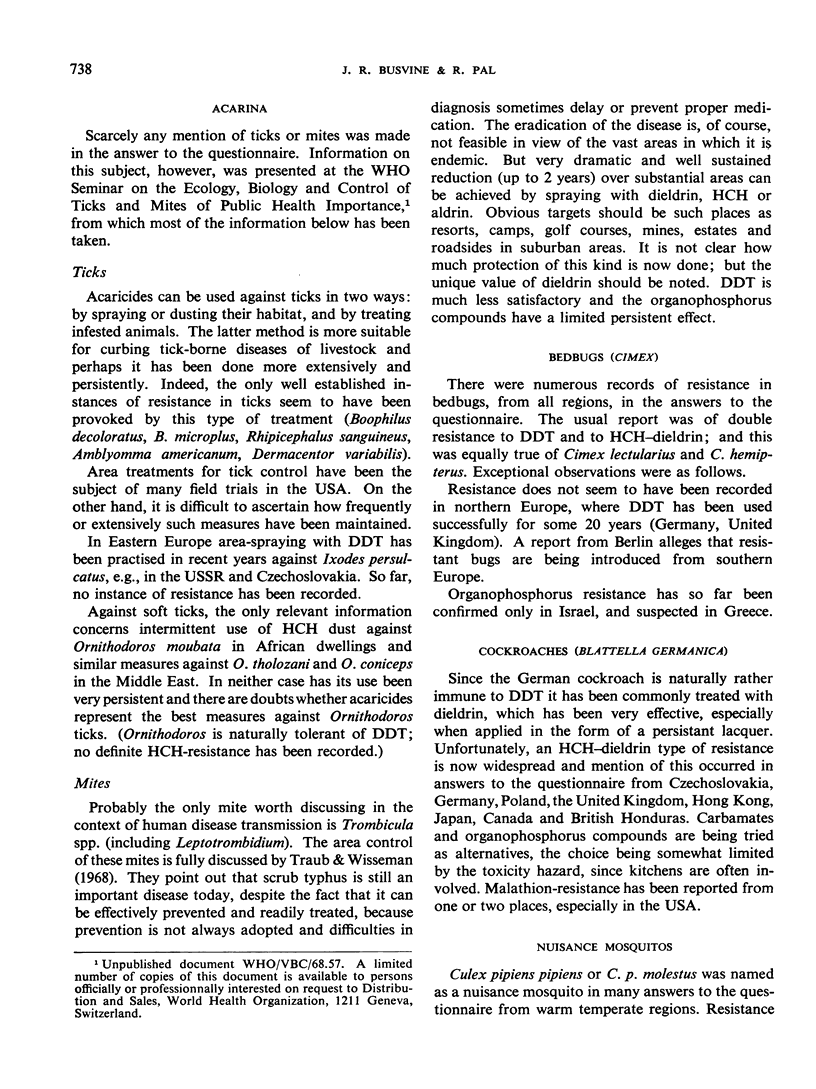
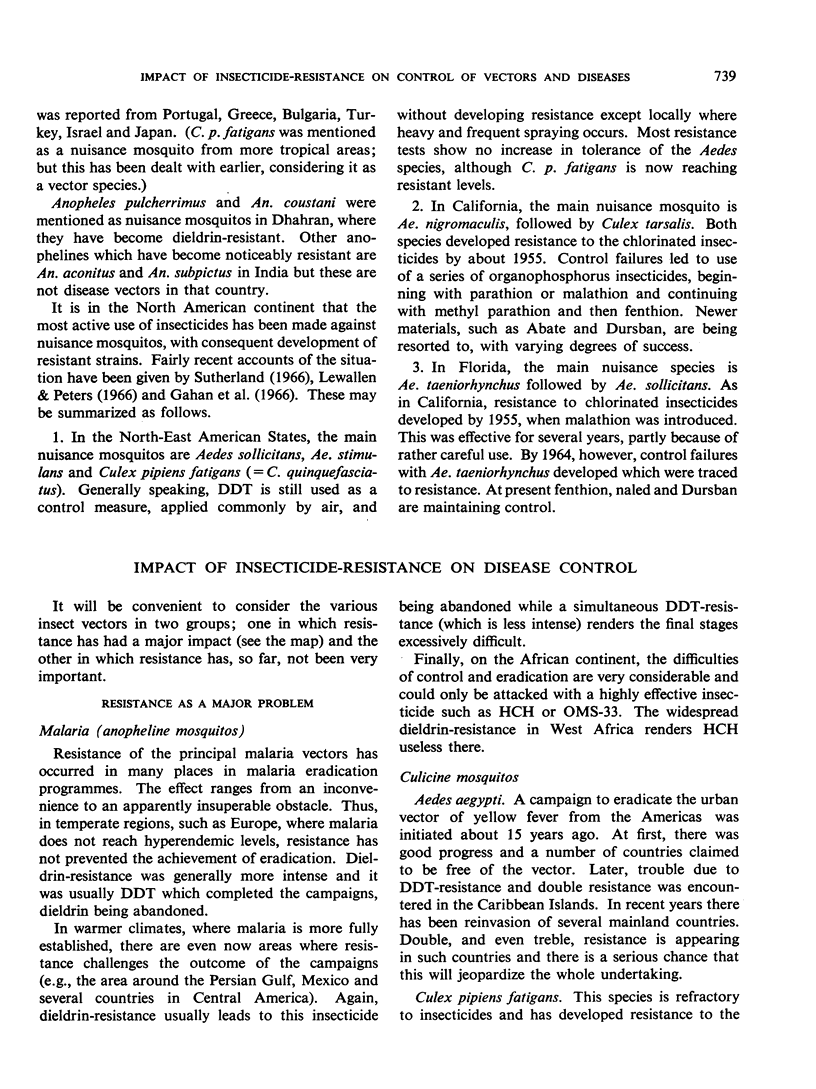
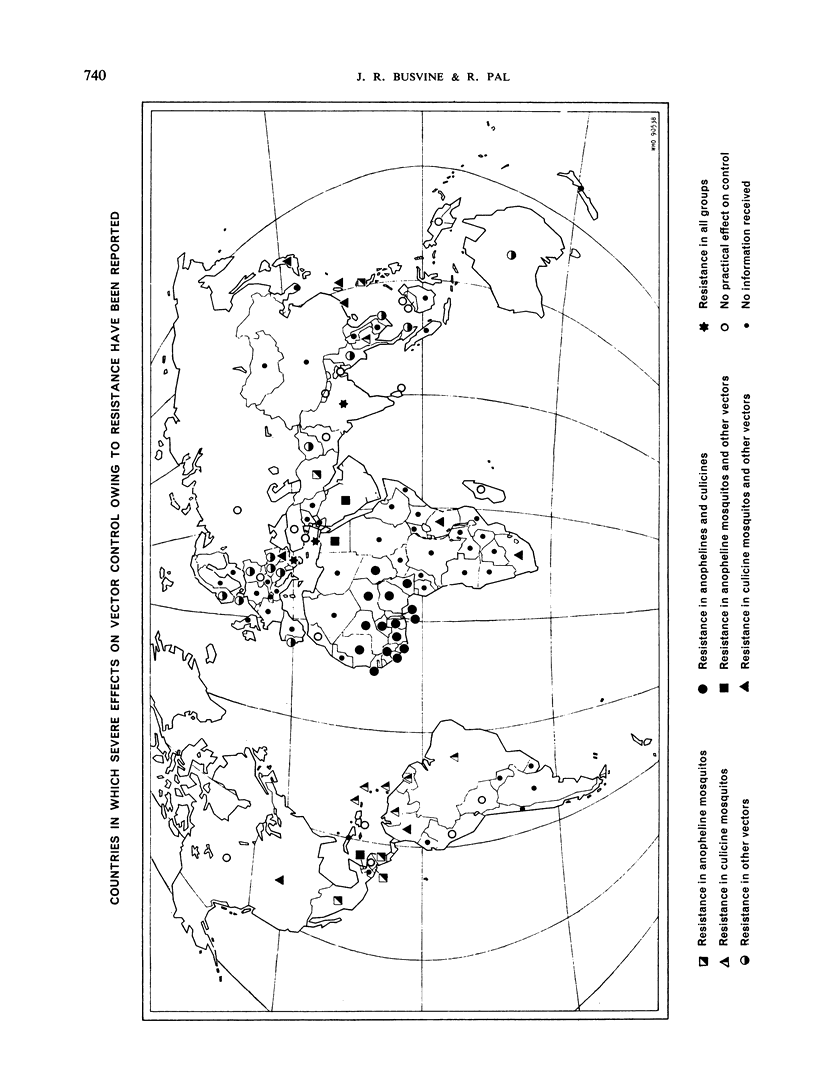
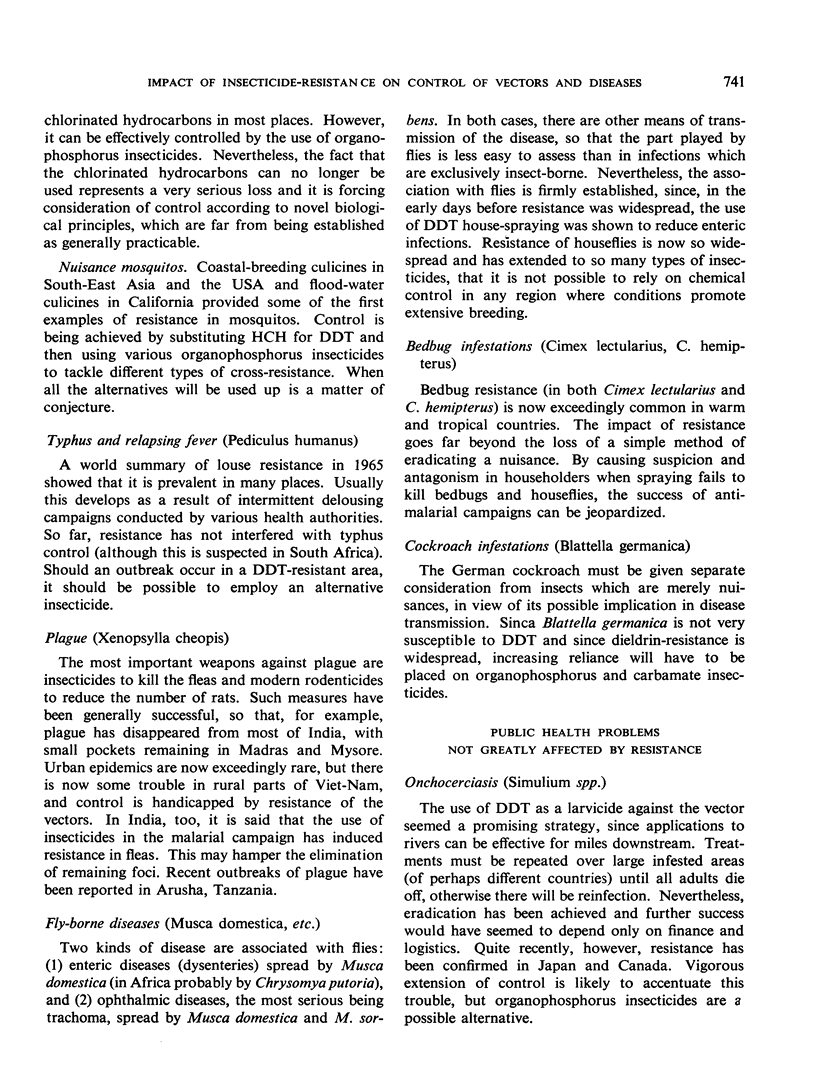
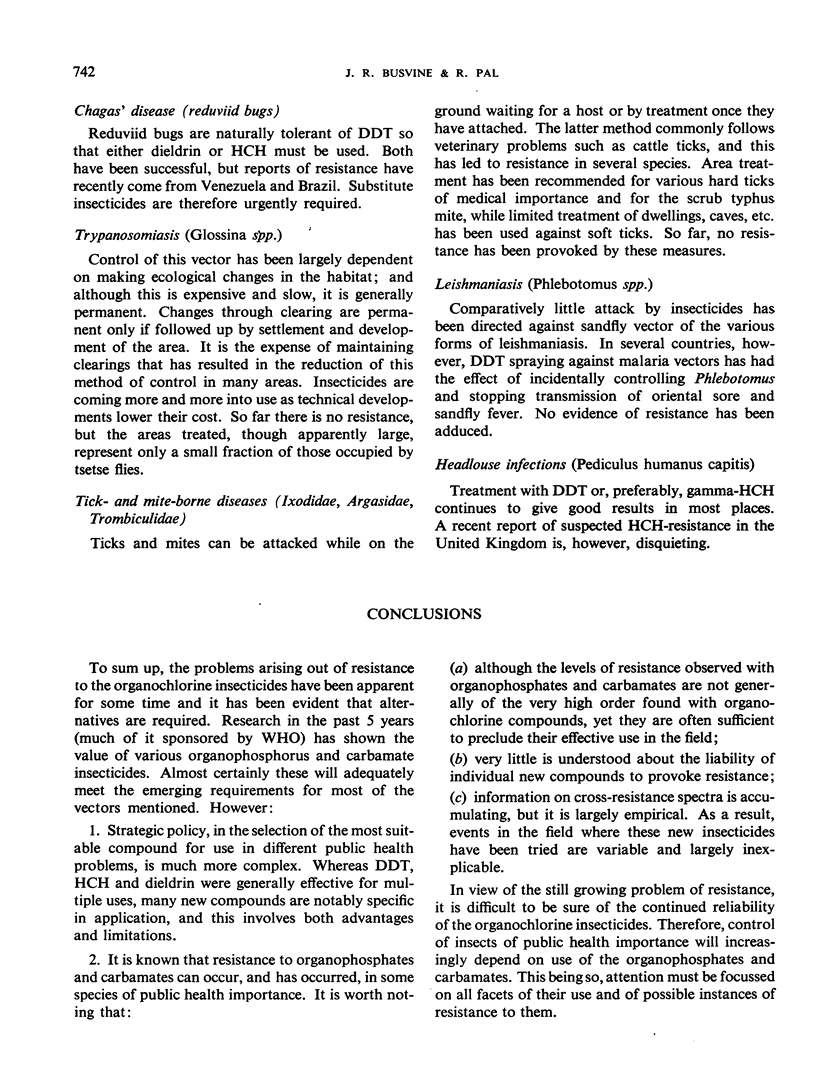
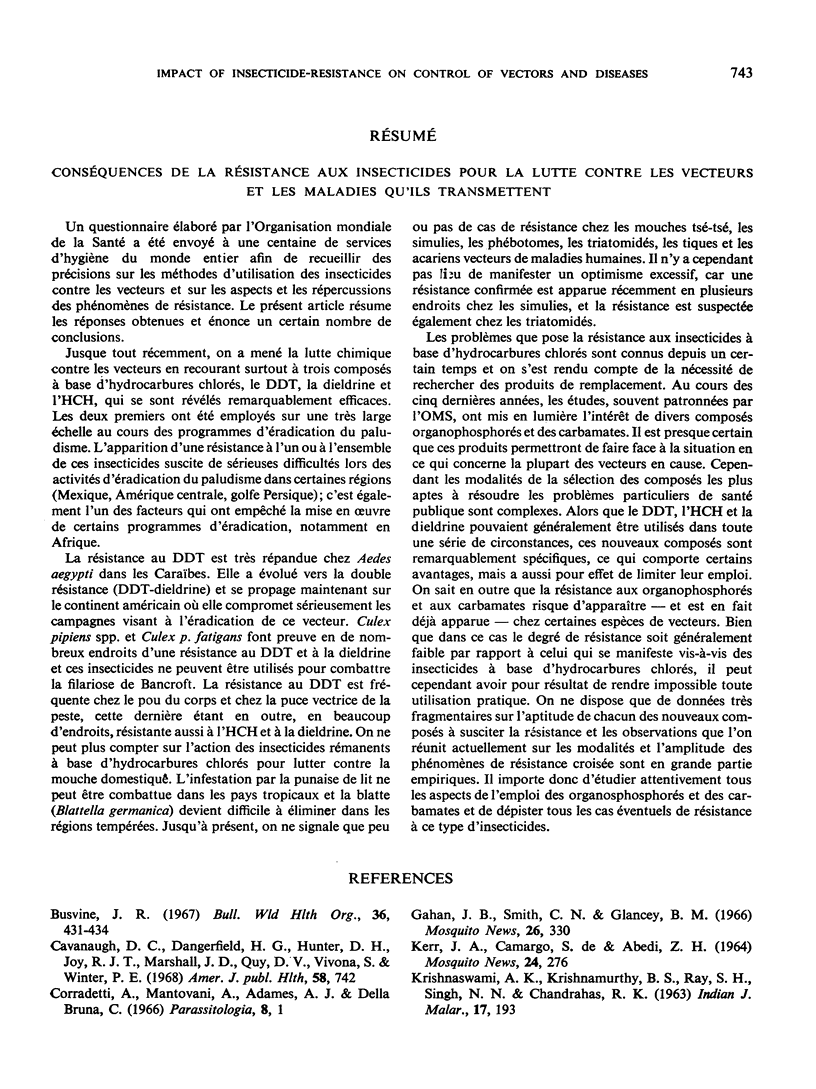
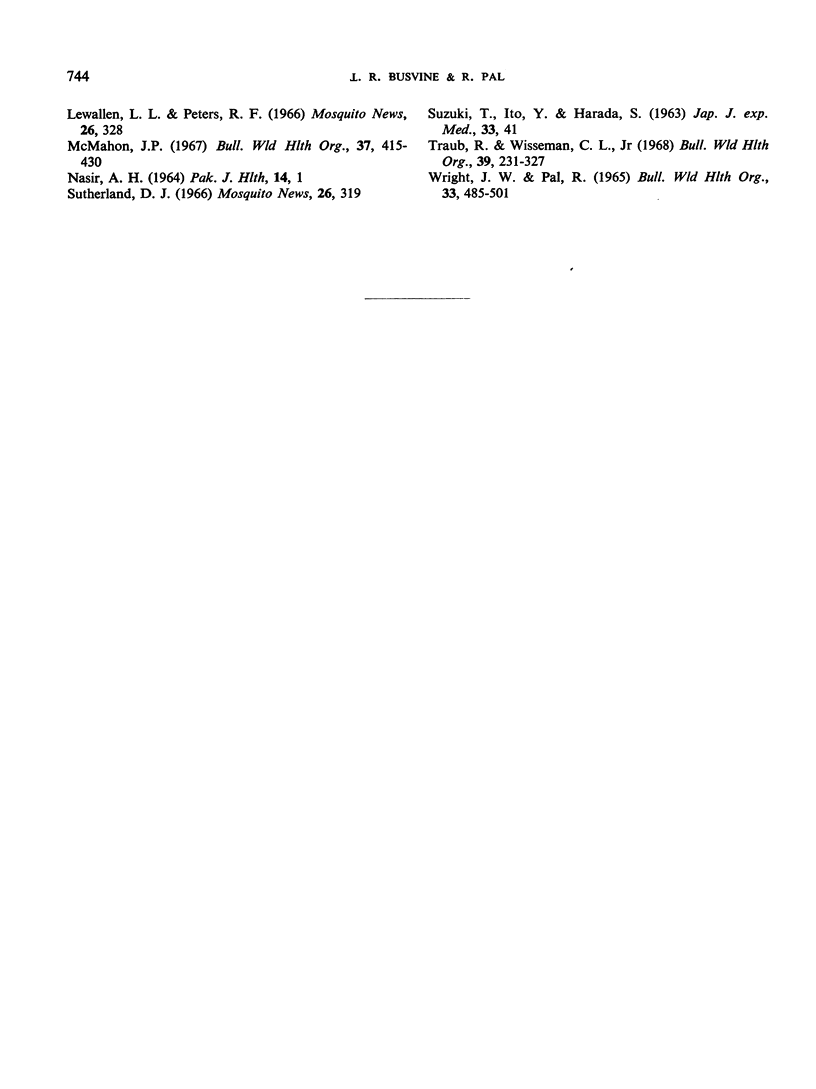
Selected References
These references are in PubMed. This may not be the complete list of references from this article.
- Busvine J. R. Inheritance of DDT-resistance in body-lice. Bull World Health Organ. 1967;36(3):431–434. [PMC free article] [PubMed] [Google Scholar]
- Cavanaugh D. C., Dangerfield H. G., Hunter D. H., Joy R. J., Marshall J. D., Jr, Quy D. V., Vivona S., Winter P. E. Some observations on the current plague outbreak in the Republic of Vietnam. Am J Public Health Nations Health. 1968 Apr;58(4):742–752. doi: 10.2105/ajph.58.4.742. [DOI] [PMC free article] [PubMed] [Google Scholar]
- KRISHNASWAMI A. K., KRISHNAMURTHY B. S., RAY S. N., SINGH N. N., CHANDRAHAS R. K. INVESTIGATION ON PLAGUE IN KOLAR DISTRICT (MYSORE STATE). II. RATS AND RAT-FLEAS. Indian J Malariol. 1963 Jun-Sep;17:193–203. [PubMed] [Google Scholar]
- McMahon J. P. A review of the control of Simulium vectors of onchocerciasis. Bull World Health Organ. 1967;37(3):415–430. [PMC free article] [PubMed] [Google Scholar]
- SUZUKI T., ITO Y., HARADA S. A RECORD OF BLACKFLY LARVAE RESISTANT TO DDT IN JAPAN. Jpn J Exp Med. 1963 Feb;33:41–46. [PubMed] [Google Scholar]
- Traub R., Wisseman C. L., Jr Ecological considerations in scrub typhus. 3. Methods of area control. Bull World Health Organ. 1968;39(2):231–237. [PMC free article] [PubMed] [Google Scholar]
- Wright J. W., Pal R. Second survey of insecticid-resistance in body-lice, 1958-63. Bull World Health Organ. 1965;33(4):485–501. [PMC free article] [PubMed] [Google Scholar]


